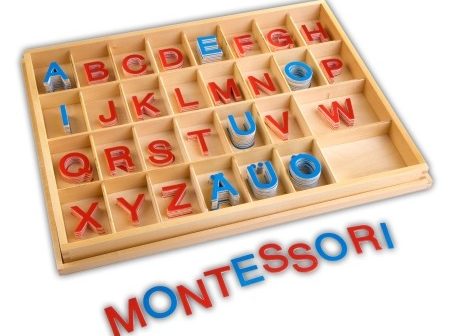Much touted and popular the world over, the Montessori method has been around for well over 100 years but questions still linger over how it is best applied and how much it should change with the times.
The Atlantic‘s Emily Chertoff writes about the tumultuous history of relations between the two main Montessori associations in the US — the Association Montessori Internationale (AMI), the original organization founded by Maria Montessori herself, and the American Montessori Society (AMS), which was originally the American affiliate of the AMI but later became a splinter group due to different teaching philosophies. As the author quotes an official statement by AMS in the article:
AMS insisted that all teacher educators have a college degree so that the coursework could, potentially, be recognized by state education departments. AMS also broadened the curriculum for teachers and sought to forge inroads into mainstream education by offering Montessori coursework in traditional teacher preparation programs.
Mario Montessori disagreed with these changes, and in 1963 AMI and AMS parted ways. The two organizations have since reconciled their differences, and now enjoy a collegial relationship of mutual support and respect.
PR speak notwithstanding, Chertoff points out later in the article that much hostility ensued between the groups after their split in ’63 (bringing to mind a parallel history of conflict between the Catholic and Protestant churches) and suggests that on the heels of rapid changes in technology “research suggests that a decrease tactile play has hurt the development of children’s motor skills … the constructivist approach of old-school Montessori may make a good antidote…”
Here in Beijing there is no shortage of schools offering “Montessori-style education” but rather than focusing on the methodology itself, parents most often wonder if some of the institutions touting its practice are actually applying it effectively or merely using the term as a marketing tool.
I’ve often wondered the same about my daughter’s kindergarten, which claims to have a “Montessori-inspired” curriculum (whatever that means), but with little basis of comparison it’s difficult to objectively assess the quality of her education.
If you’ve had similar questions, concerns or experiences with Montessori education in Beijing, feel free to comment below and in this forum thread.




